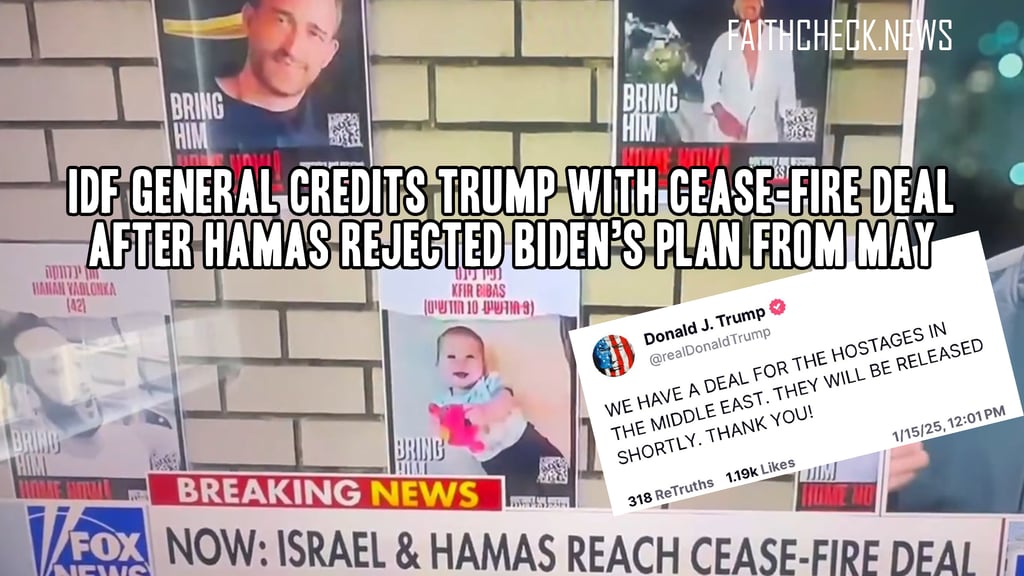IDF General Say Trump's Threat Led to Cease-fire Deal After Hamas Rejected Similar Deal From Last Year
IDF General Attributes Cease-fire Success to Trump’s Threat, After Hamas Declined Similar Deal in May
NEWS
1/16/20251 min read


Just days from taking office, President Trump is credited with forcing Hamas to agree to release the hostages. IDF Reserve Brig. Gen. Amir Avivi highlights "two key factors" that shifted in the Israel-Hamas cease-fire agreement following fifteen months of conflict in the Middle East.
"This deal has been on the table since May last year and Hamas opposed it completely. Why? There was no real pressure on Hamas," Avivi told "Your World" on Wednesday. "Israel wanted to stop some of the humanitarian aid, especially some of the gasoline, but the administration wouldn't let us do that. So Israel has no major leverage on them."
"What's changed is two things," Avivi told Fox News. "One, Israel defeated Hezbollah and Hezbollah cannot support Hamas anymore. Also, Syria fell. Iran is weaker. But the big change is President Trump's threat."
"Once President Trump threatened them, that if they don't release hostages, there will be hell… I think they understand that if they don't get a deal now, the chances of getting a good deal for them will be very, very low, if at all. And therefore, they made their own assessment, and they are inclined to do the deal, thinking that they'll maximize what they can get now and not wait to see what 'hell' means," Avivi stated.
On Wednesday, President Biden's White House National Security communications adviser John Kirby recognized President-elect Donald Trump's incoming Middle East special envoy Steve Witkoff as a key figure in brokering the deal.

Faith Check News
Curating daily news stories for Christian readers.
CONNECT OTHERS
© 2025. All rights reserved.
